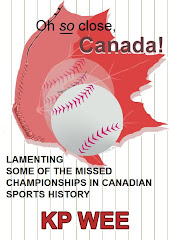
The Hockey News recently listed former Boston Bruins netminder Andy Moog's 1992-93 mask as being the scarriest in hockey history.
That's great, but why is Moog not applauded for his on-ice accomplishments?
Sure, the Hockey Hall of Fame is tough on goaltenders, as only a couple from Moog's era (Grant Fuhr and Patrick Roy) have been inducted.
Moog, however, won 372 games in his 18-year NHL career, and finished with a decent 3.13 GAA. (Remember he started his career in the 1980s, an era when high-scoring games were the norm.) When he retired in 1998, Moog had the highest winning percentage, all-time in history, among NHL goalies with at least 10 seasons.
Moog was the first of his era to reach the 300-win plateau. Sure, he began his career before Roy and Fuhr, and thus was able to get to the milestone quicker. But other top goalies who started playing before Moog did, such as Mike Liut and Greg Millen, never got to the 300 club.
Nope, Moog never helped a team win the Stanley Cup as a number one goalie, but he did have his playoff moments, both for the Edmonton Oilers and the Boston Bruins.
Moog was the 21-year-old rookie who had played only seven NHL games in 1981 when injuries to the other Oilers goaltenders made him the starter in the playoffs.
Edmonton, which had never won a playoff series up to that point, received spectacular goaltending from Moog as the No. 14-seeded Oilers upset the No. 3-seeded (and heavily favoured) Montreal Canadiens in a three-game sweep of the preliminary round.
The Oilers fell to the defending champion New York Islanders in the round, but Moog's heroics were certainly memorable.
After an embarrassing first-round defeat to the L.A. Kings in 1982 with Fuhr in goal, Edmonton coach Glen Sather went back to Moog in the 1983 playoffs.
Moog started every game that spring and went 11-1, carrying the Oilers to the Cup Finals against the Islanders. A 2-0 loss (Moog allowed one goal and the Isles scored an empty-netter to clinch it) in Game One against New York ended Edmonton's run, and the Islanders never looked back.
A four-game sweep at the hands of the powerful Isles wasn't a perfect ending to the 1982-83 season, but Moog had helped Edmonton reach the Finals for the first time in franchise history.
The next season, Fuhr was the starter between the pipes in the playoffs but it was Moog who played the final two games (with Fuhr out with an injury) as the Oilers defeated the Islanders to clinch their first Cup.
Moog was 143-53-21 in seven seasons with the Oilers. However, Fuhr was always seen as superior than Moog. (Ironically, during the same time, Fuhr's regular season stats were similar to Moog's; Fuhr was 148-56-33 when he and Moog were teammates.)
It was on to Boston, where Moog's Bruins, who had beaten the Canadiens in the playoffs only once all-time and had lost 18 straight series to the Habs, suddenly reversed the trend.
Moog's Bruins knocked out Roy's Canadiens in the 1990, 1991, and 1992 playoffs, with Andy owning a 12-4 record against St. Patrick in those contests. (Like Dave Stewart dominating Roger Clemens in the baseball postseason.)
With Moog, the Bruins made it to the Finals in 1990, before they fell victim to the Oilers in five games.
Boston made it to the Wales Conference Finals in 1991 and 1992, but the Bruins fell short, losing to Mario Lemieux and the Pittsburgh Penguins both years.
Leading the Bruins to three straight Final Four appearances is no small feat, and Boston has not come close to sniffing any kind of playoff glory since.
After Moog's departure from Boston (at the end of the 1992-93 season), the Bruins have won only two playoff series. Two series in the last 13 years. And the Bruins have employed a plethora of goalies, such as Jon Casey, Jim Carey, Bill Ranford, Andrew Raycroft, Byron Dafoe, Craig Billington, and Blaine Lacher. None have been as solid as Moog, the true "Hab-Killer" come playoff time.
Nope. Moog isn't seen as one of the top three goalies all-time in Edmonton, as Fuhr, Ranford, and Curtis Joseph are all highly regarded as Oilers legends.
Nope. Boston has its own history of great netminders in Tiny Thompson, Frank "Mr. Zero" Brimsek, and Gerry Cheevers, who'd all won Stanley Cups for the Bruins. So Moog isn't ranked atop the B's all-time list of great, great goalies.
Ironically, Moog was traded away from Boston before he could claim his 300th career win, and was also denied the opportunity to play in the final game in Boston Garden. (Moog was traded two seasons before the Garden was replaced by the FleetCenter.) Patrick Roy was also shipped out of Montreal before he could win No. 300 and shortly before the last game was to be played at the Forum.
At least Moog managed to play in the historic final game at the Forum, when his Dallas Stars took on the Habs in 1996. And Moog also participated in the 1988 Winter Olympics in Calgary, going 4-0-0 in his games. (Team Canada finished fourth, as the team didn't fare as well in Sean Burke's starts.)
However, no jersey retirement in Edmonton. None in Boston. It would have been nice to see Moog inducted into the Hall of Fame with Ray Bourque and Cam Neely, as they were the "Big Three" in Boston in the early 1990s, the way both Michel Goulet and Peter Statsny were inducted together as Quebec Nordiques' legends.
Mike Richter (Rangers) and Mike Vernon (Calgary), who are not Hockey Hall of Famers (yet), have all had their jerseys retired by their former teams. Ron Hextall is in the Philadelphia Flyers' Hall of Fame, despite not winning a Cup (losing the Finals in 1987 and 1997).
When will Andy Moog get his due?
**Not only does KP Wee write for Bleacher Report, he’s also a published author. Check out his fiction novel, “Showing Their Scales,” on Amazon.ca and Amazon.com.**







No comments:
Post a Comment